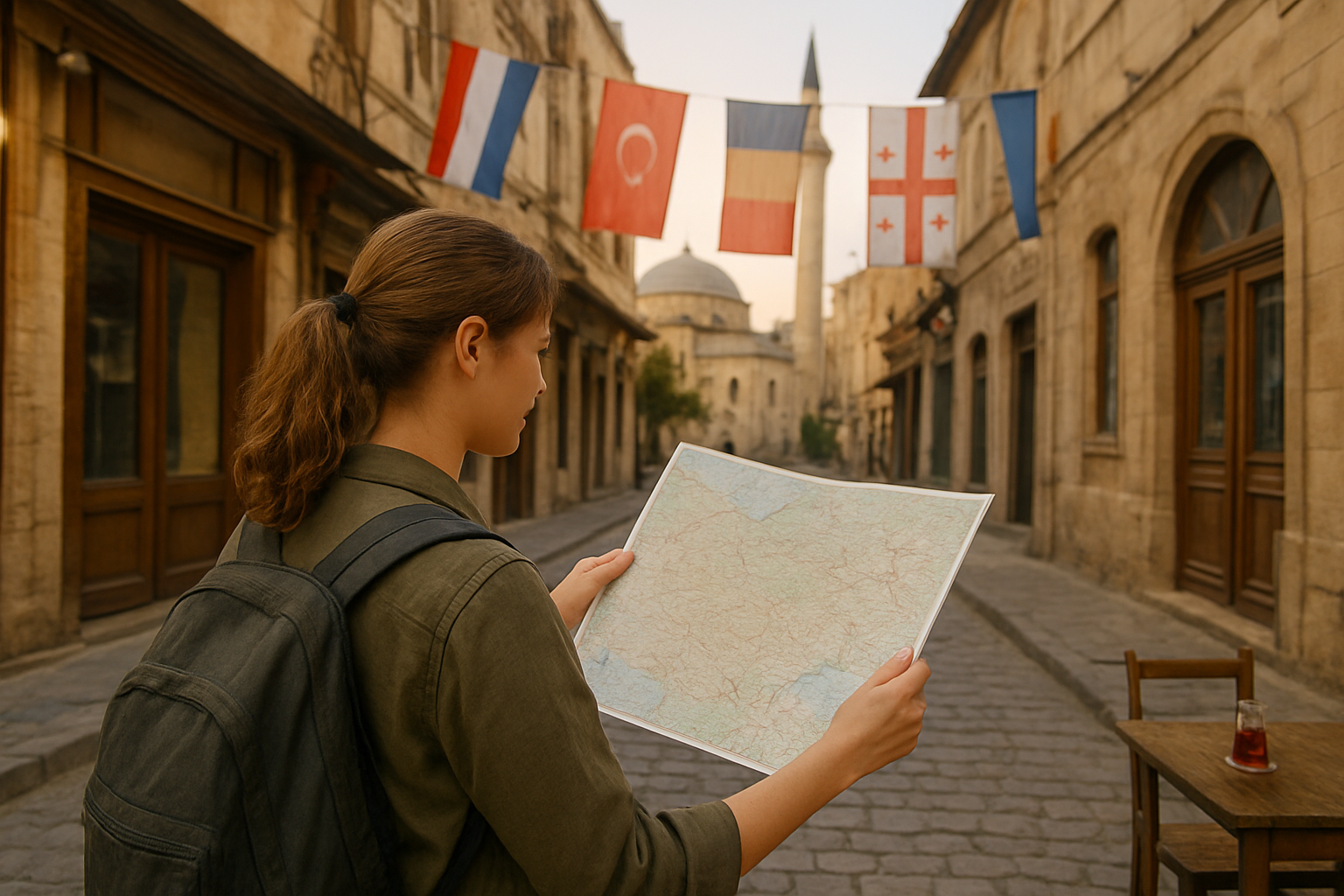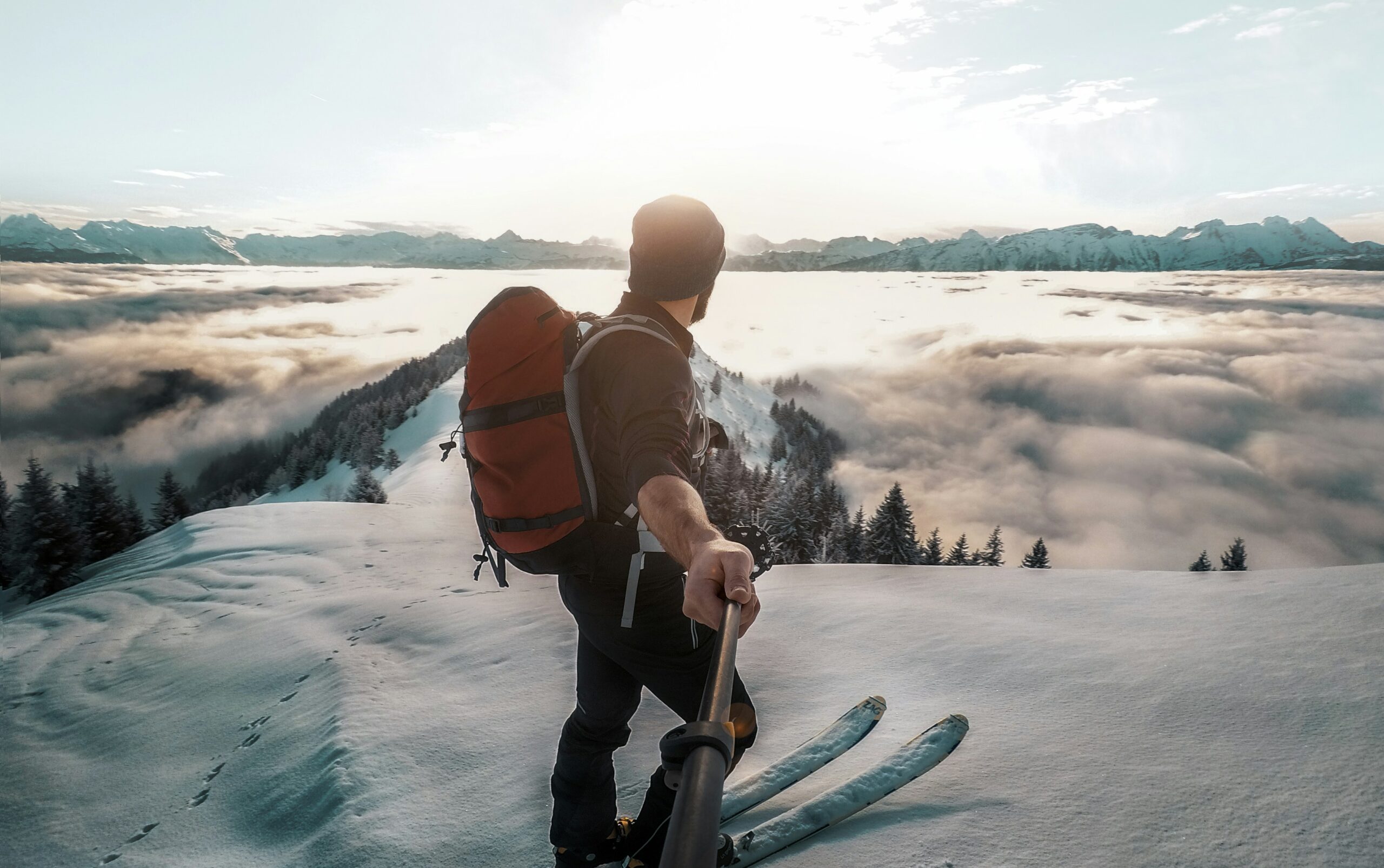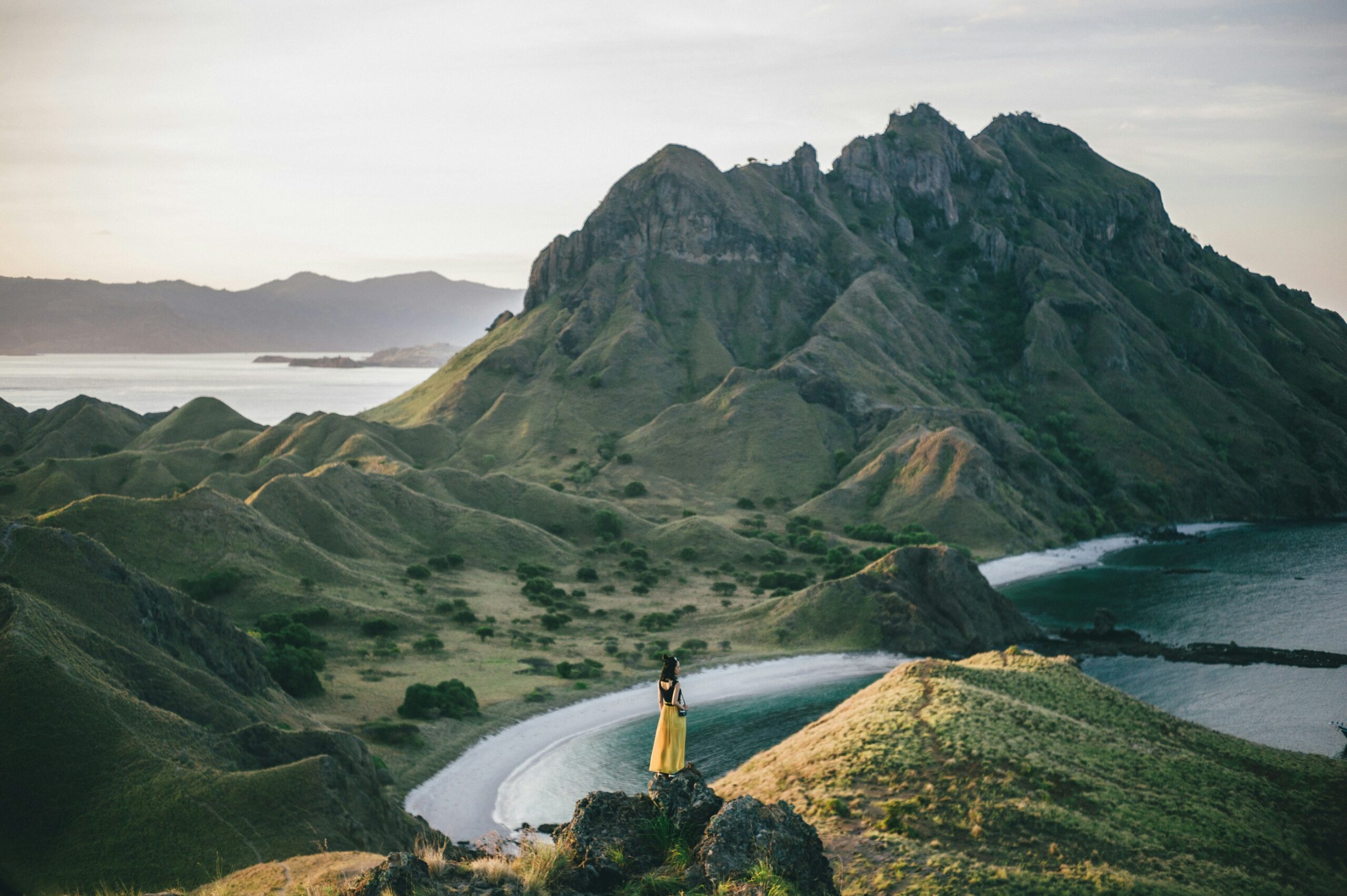How to Travel Ethically in Countries with Political Tensions
Last month, while scrolling through my feed, I stumbled upon breathtaking photos of Tbilisi’s colorful balconies against the backdrop of snow-capped mountains. The photographer mentioned how peaceful and affordable Georgia felt, despite ongoing regional tensions. It got me thinking: why do some of the world’s most compelling destinations often come with complex political landscapes?
The reality is that many extraordinary places exist within countries experiencing political uncertainty. From Colombia’s vibrant street art scene to Turkey’s unmatched culinary heritage, these destinations offer experiences you simply can’t find elsewhere. But traveling to such places isn’t just about booking a flight and hoping for the best. It requires intentional planning, cultural sensitivity, and a commitment to doing more good than harm.
Whether you’re a weekend warrior seeking authentic experiences or a digital nomad considering a longer stay, this guide will help you navigate these complex destinations responsibly.
When Political Instability Doesn’t Mean “Don’t Go”
The conventional wisdom tells us to avoid anywhere with political tensions, but this black-and-white thinking misses important nuances. Many countries experiencing political challenges still offer safe, meaningful travel experiences when approached thoughtfully.
Consider these compelling reasons why informed travelers choose these destinations:
Economic solidarity matters. When international tourism drops, local communities often suffer most. Your thoughtful visit can provide crucial income to small business owners, artisans, and service providers who depend on tourism but get abandoned when headlines turn negative.
Authentic cultural immersion. Without tour buses and cruise ship crowds, you’ll experience destinations as locals do. You might find yourself sharing tea with shopkeepers, joining impromptu neighborhood celebrations, or discovering hidden gems that guidebooks never mention.
Historical perspective becomes personal. Walking through places where history unfolds in real-time offers profound insights that no museum exhibit can match. You’ll return home with a deeper understanding of global complexity and human resilience.
Take Georgia’s capital, Tbilisi, where despite territorial disputes, the city pulses with creativity and entrepreneurship. Or consider Medellín, Colombia, which has transformed from its troubled past into a thriving hub for innovation and culture. These places prove that political challenges don’t automatically equal travel impossibility.
Related Post: Tbilisi Travel Guide: Why Georgia’s Capital is a Must-Visit in 2025
Research That Goes Beyond Travel Blogs
Smart preparation starts with understanding the full picture, not just the highlights reel. Your research should paint a complete portrait of current conditions, recent developments, and local perspectives.
Start with official sources but don’t stop there. Government travel advisories from the U.S. State Department or UK Foreign Office provide essential baseline information, but they often err on the side of extreme caution and may not reflect on-ground realities.
Complement official sources with diverse perspectives. Follow journalists and photographers based in your destination on social media. Read local English-language newspapers online. Join destination-specific Facebook groups where expats and long-term travelers share real-time observations. Apps like Citizen or local equivalents can provide immediate updates about incidents or disruptions.
Pro insight: Set up Google Alerts for your destination plus keywords like “protests,” “security,” or “travel” starting several weeks before departure. This creates an early warning system for developing situations.
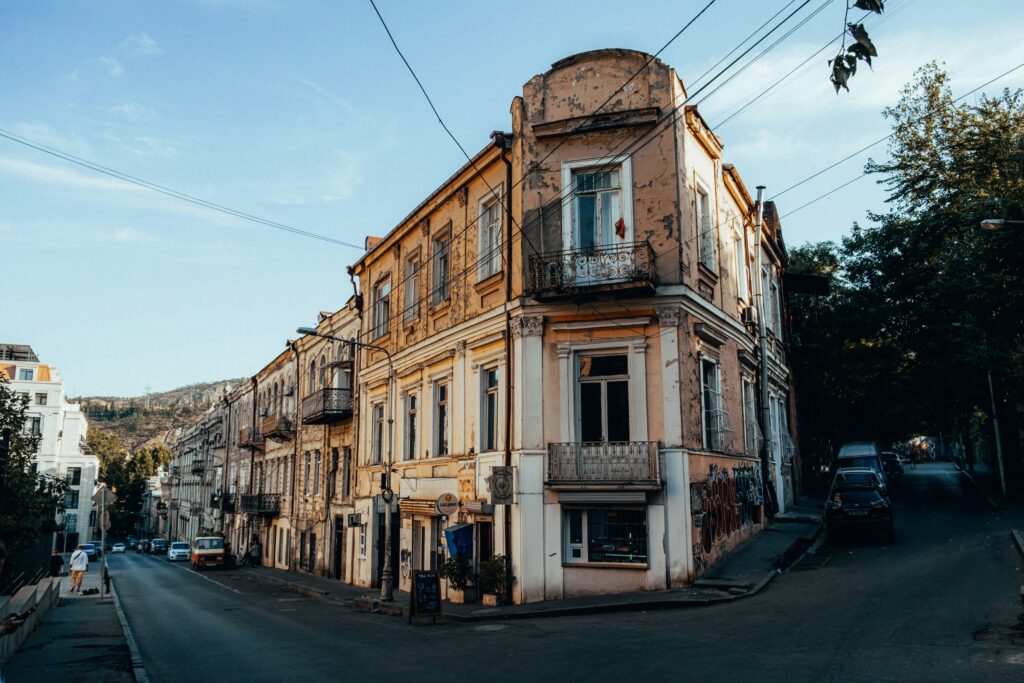
Visa Complexities: When Rules Change Overnight
Political volatility makes visa requirements particularly fluid. What worked last month might not work next week, and embassies sometimes implement changes with little notice.
Always start with official embassy websites for your specific nationality. Avoid third-party visa advice sites that might contain outdated information. If you’re unsure about requirements, call the embassy directly rather than relying solely on email responses, which can be delayed.
For complex situations, consider services like iVisa, which monitors policy changes and can expedite applications. However, remember that no service can guarantee approval, especially during periods of heightened political sensitivity.
Special consideration zones deserve extra attention. Many countries have regions requiring additional permits or that are completely off-limits to foreign visitors. These restrictions exist for good reasons, and attempting to circumvent them puts both you and local communities at risk.
Related Post: How to Get the Hardest Digital Nomad Visa: A Full Guide
Insurance: Your Financial Safety Net
Standard travel insurance often excludes coverage for “political events” or “civil unrest,” making specialized coverage essential. Look for policies that explicitly cover political evacuation, trip interruption due to civil unrest, and medical treatment in unstable regions.
SafetyWing offers nomad-friendly coverage with political evacuation benefits, while World Nomads provides comprehensive protection for adventure travelers. Read policy exclusions carefully; some insurers won’t cover you if your government has issued travel warnings above certain levels.
Keep digital copies of your insurance documents easily accessible. During emergencies, having instant access to policy numbers and emergency contacts can make the difference between swift assistance and bureaucratic delays.
Cultural Navigation: Reading the Room
Successful travel in politically tense environments requires exceptional cultural sensitivity. Local politics aren’t academic topics for debate; they’re lived realities affecting every person you’ll encounter.
Develop political awareness without political opinions. Understand enough about the situation to avoid inadvertent offense, but resist the urge to share your outsider perspectives. A casual comment about government policies or historical events might seem harmless to you but could put your local conversation partner in an uncomfortable or even dangerous position.
Visual cues matter enormously. Research local dress codes and err on the conservative side. Expensive electronics, designer clothing, or obvious displays of wealth can make you a target and reinforce negative stereotypes about foreign visitors.
Digital discretion protects everyone. Geotagging photos in real-time, especially near government buildings or during demonstrations, can create security risks. Share your experiences after you’ve moved to safer locations, and always ask permission before photographing people, particularly in areas where tensions run high.
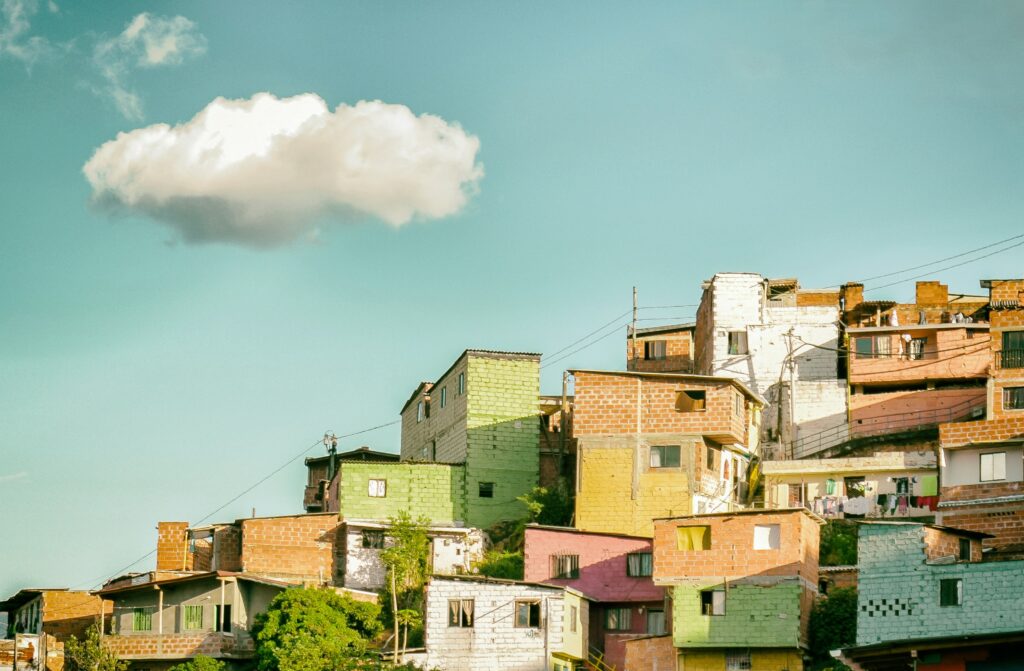
Technology Tools for Uncertain Times
Smart technology choices can provide security and connectivity when local infrastructure becomes unreliable.
For navigation, download offline maps before arrival. Both Maps.me and Google Maps allow extensive offline functionality, crucial when internet access becomes spotty or expensive.
Communication apps deserve special consideration. WhatsApp works well in most countries and offers end-to-end encryption. Signal provides even stronger security if you’re concerned about surveillance. Download these before travel, as app stores might be restricted in certain regions.
Connectivity solutions become critical for remote workers. Airalo and similar eSIM providers offer data plans that don’t depend on local carriers, which might face service interruptions during unrest. VPN services like NordVPN help maintain access to blocked websites and protect your online activity.
For digital nomads specifically, Nomad List provides community-driven safety updates and cost-of-living information, while CoWorker helps locate reliable workspace options that might remain open during disruptions.
Destinations That Defy Simple Categories
Some places experiencing political tensions still offer remarkable opportunities for thoughtful travelers. These destinations prove that complexity doesn’t automatically equal impossibility.
Tbilisi, Georgia continues attracting remote workers despite territorial disputes with Russia. The city offers excellent internet infrastructure, a thriving startup scene, and incredibly affordable living costs. The local population remains welcoming to foreigners, and the wine culture provides endless opportunities for cultural exchange. Stick to the capital and major tourist areas while avoiding the disputed territories of South Ossetia and Abkhazia.
Medellín, Colombia has transformed dramatically from its troubled past. While occasional protests occur in major cities, day-to-day life remains normal, and the digital nomad community provides excellent support networks. The city’s perfect climate, innovative public transportation, and emerging tech scene make it attractive for longer stays. Monitor news about rural areas and avoid regions with active FARC presence.
Istanbul, Turkey straddles Europe and Asia both geographically and politically. Despite domestic political tensions, the city maintains its role as a cultural and economic hub. The Turkish lira’s volatility actually makes it more affordable for foreign visitors, while the city’s incredible history and cuisine remain unchanged. Focus on tourist areas and avoid large political gatherings.
Beirut, Lebanon offers Middle Eastern culture without some of the travel restrictions found in neighboring countries. Despite economic challenges and political uncertainty, the city’s resilient population maintains an incredible food scene and vibrant nightlife. Banking restrictions mean bringing sufficient cash, and infrastructure can be unreliable, but cultural rewards are substantial.
Each destination requires specific preparation. Research current visa requirements, understand local currency challenges, and identify reliable accommodation options that cater to international visitors.
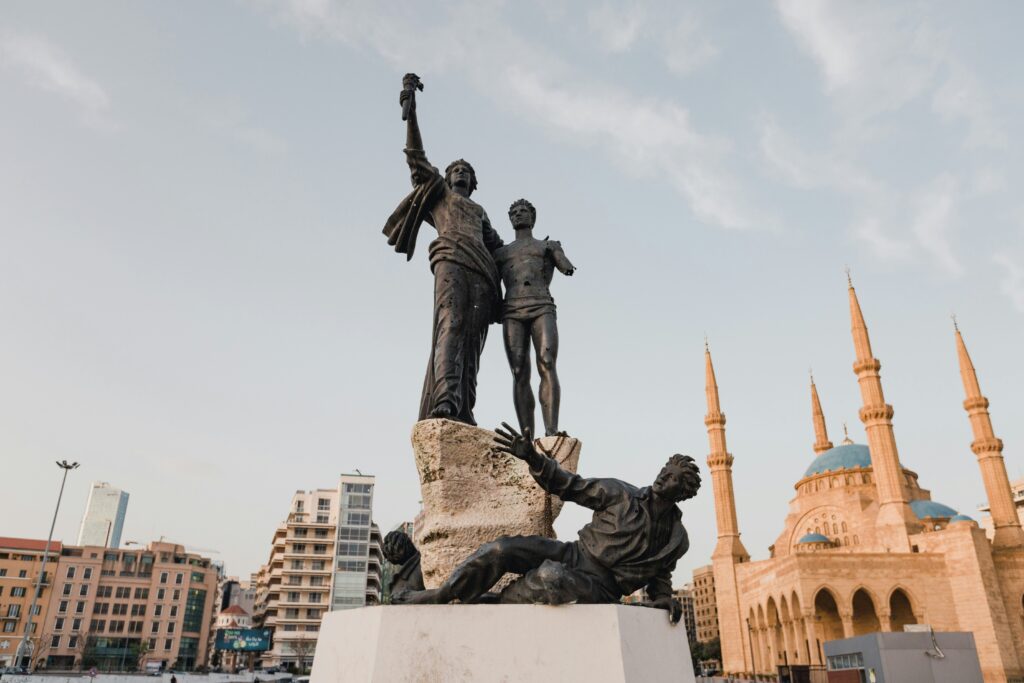
When Things Don’t Go According to Plan
Even experienced travelers encounter unexpected situations in politically volatile regions. Preparation and clear thinking become essential when circumstances change rapidly.
Embassy registration isn’t optional. Most countries offer online registration systems that connect you to emergency services and evacuation assistance. Complete this process immediately upon arrival, and keep your registration updated if you change locations.
Establish communication protocols with family or friends before departure. Share your itinerary, check-in schedule, and emergency contacts. Consider using location-sharing apps that work offline, allowing loved ones to track your general whereabouts without compromising your security.
Financial preparation requires extra consideration. Political instability often affects banking systems and ATM availability. Carry multiple forms of payment: cash in both local currency and stable foreign currency (USD or EUR), multiple debit/credit cards from different banks, and emergency funds accessible through international services like Western Union.
Document security becomes critical. Keep physical copies of important documents in multiple locations, store digital copies in encrypted cloud storage accessible from any device, and carry extra passport photos for emergency document replacement.
The Ethics of Economic Impact
Responsible travel in politically tense regions means considering your economic footprint carefully. Your spending choices become more significant when local economies face pressure from reduced tourism and international sanctions.
Support local ownership whenever possible. Choose family-run guesthouses over international hotel chains. Eat at neighborhood restaurants rather than familiar fast-food brands. Shop at local markets and hire local guides who can provide authentic cultural insights.
Fair compensation becomes even more important during economic uncertainty. Tip appropriately for local standards, pay fair prices for services without excessive bargaining, and consider the long-term impact of your choices on local communities.
Avoid poverty tourism or conflict-themed experiences that exploit local suffering for entertainment. Responsible travel means engaging with culture and humanity, not treating political challenges as tourist attractions.
Practical Money Matters
Currency considerations become complex in politically unstable regions. Inflation, exchange rate volatility, and banking restrictions can significantly impact your travel budget and payment options.
Research current economic conditions before departure. Some countries experiencing political tensions also face currency crises, making timing important for your budget. Others might have restrictions on foreign currency exchange or limits on ATM withdrawals.
Download currency apps like XE Currency that work offline, since exchange rates might fluctuate significantly during your visit. Understand whether local businesses prefer cash, cards, or alternative payment methods.
Banking relationships matter. Notify your bank about travel plans to avoid card freezes, and ensure you have backup access to funds through multiple institutions. Consider carrying a small amount of gold or silver jewelry as emergency currency in extreme situations.
Building Cultural Bridges, Not Walls
The most meaningful travel experiences in politically complex destinations come from genuine human connections. Focus on learning from local perspectives rather than confirming preexisting beliefs or stereotypes.
Language preparation shows respect and opens doors. Learn basic phrases in the local language, understand cultural greetings and expressions of gratitude. Even simple efforts at communication demonstrate respect and often lead to warmer interactions.
Cultural curiosity should guide your exploration. Ask about local traditions, food preparation methods, family customs, or regional history. These conversations build understanding while avoiding sensitive political topics.
Share your own culture thoughtfully. Locals often appreciate learning about your background, but focus on positive aspects of cultural exchange rather than comparisons that might seem judgmental.
Related Post: Cultural Destinations for Immersive Experiences
Making Your Journey Matter
Ethical travel in politically tense regions ultimately comes down to leaving places better than you found them, even in small ways. This might mean supporting a local artist by purchasing their work, volunteering your professional skills for a community project, or simply treating every interaction with respect and curiosity.
Document your experiences responsibly. Share stories that highlight human resilience, cultural richness, and local beauty rather than focusing on conflict or poverty. Your social media posts and travel stories can shape how others perceive these destinations.
Consider longer-term impact. If you’re planning an extended stay as a digital nomad, think about how you can contribute to local communities beyond just economic spending. Teaching skills, mentoring local entrepreneurs, or connecting local businesses with international opportunities can create lasting positive change.
Remember that responsible travel is an ongoing learning process. Each destination teaches new lessons about cultural sensitivity, political awareness, and ethical decision-making. The goal isn’t perfect travel, but thoughtful travel that respects local communities while creating meaningful experiences for yourself.
The world’s most fascinating destinations often exist in places where simple tourism advice doesn’t apply. With careful planning, cultural sensitivity, and ethical awareness, these complex destinations can offer some of travel’s most profound rewards while supporting communities that need thoughtful visitors most.
Related Resources:
- Government Travel Advisories
- Nomad List Community
- SafetyWing Travel Insurance
- iVisa Application Services
Related Post: Cultural Etiquette Around the World: Do’s and Don’ts When Traveling Abroad
